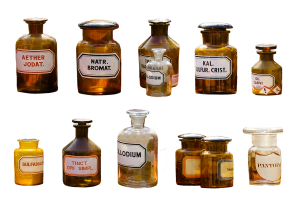About Non-Medical Prescription Drugs
Table of Contents
- Introduction
- What are Non-Medical Prescription Drugs?
- Reasons for Non-Medical Prescription Drug Use
- The Dangers of Non-Medical Prescription Drug Use
- Recognizing Non-Medical Prescription Drug Abuse
- Treatment and Recovery
- The Importance of Education and Awareness
- Regulatory Measures
- Preventing Non-Medical Prescription Drug Abuse
- The Role of Healthcare Providers
- Personal Stories of Recovery
- Conclusion
- FAQs
Introduction
Non-medical prescription drug abuse has become a growing concern in today's society. This article delves into the world of non-medical prescription drugs, shedding light on the reasons behind their misuse, the dangers they pose, and the steps we can take to combat this issue.
What are Non-Medical Prescription Drugs?
Non-medical prescription drugs, often referred to as prescription drug misuse or abuse, involve the consumption of medications not prescribed by a healthcare professional or taken for non-medical reasons. This can encompass a wide range of pharmaceuticals, including painkillers, sedatives, and stimulants.
Reasons for Non-Medical Prescription Drug Use
People turn to non-medical prescription drugs for various reasons. Some seek a high or an altered state, while others use them as a form of self-medication to alleviate physical or emotional pain. Additionally, peer pressure and social factors can influence individuals to misuse these medications.
The Dangers of Non-Medical Prescription Drug Use
Abusing non-medical prescription drugs can lead to severe health risks, including addiction, overdose, and adverse side effects. Furthermore, engaging in such activities can result in legal consequences and have a detrimental impact on personal relationships and overall quality of life.
Recognizing Non-Medical Prescription Drug Abuse
Identifying non-medical prescription drug abuse in oneself or others is crucial for intervention. Recognizable signs and symptoms, such as changes in behavior and physical appearance, can provide valuable clues. It's essential to know how to approach someone suspected of non-medical prescription drug abuse with empathy and support.
Treatment and Recovery
For those caught in the cycle of non-medical prescription drug abuse, there is hope. Various rehabilitation options and support systems are available to assist individuals in their journey towards recovery.
The Importance of Education and Awareness
Raising awareness about non-medical prescription drug abuse is essential. This involves educating the public, healthcare providers, and policymakers about the risks and consequences associated with these actions.
Regulatory Measures
Governments and authorities have implemented regulations and policies to combat non-medical prescription drug abuse. We'll explore the steps taken to control the distribution and use of these drugs.
Preventing Non-Medical Prescription Drug Abuse
Prevention is the key to addressing this issue. This section will cover strategies to prevent non-medical prescription drug abuse and promote safe medication disposal.
The Role of Healthcare Providers
Healthcare professionals play a vital role in addressing non-medical prescription drug abuse. This includes responsible prescribing practices and identifying patients at risk of misuse.
Personal Stories of Recovery
Real-life accounts from individuals who have successfully overcome non-medical prescription drug abuse will provide inspiration and hope for those currently struggling with this issue.
Conclusion
In conclusion, non-medical prescription drug abuse is a complex problem with far-reaching consequences. It's crucial to understand the reasons behind this behavior, recognize its signs, and work towards prevention and recovery.
FAQs
-
What are non-medical prescription drugs?
Non-medical prescription drugs are pharmaceuticals that are used for non-medical reasons, such as seeking a high or self-medication, without a healthcare professional's prescription.
-
What are the dangers of non-medical prescription drug use?
The dangers include health risks, legal consequences, addiction, and adverse side effects.
-
How can I recognize non-medical prescription drug abuse in someone?
Recognizable signs and symptoms may include changes in behavior, appearance, or social withdrawal.
-
What can healthcare providers do to combat non-medical prescription drug abuse?
Healthcare providers can play a crucial role by prescribing responsibly and identifying patients at risk.
-
Are there any success stories of recovery from non-medical prescription drug abuse?
Yes, personal stories of recovery provide hope and inspiration for those struggling with this issue.

